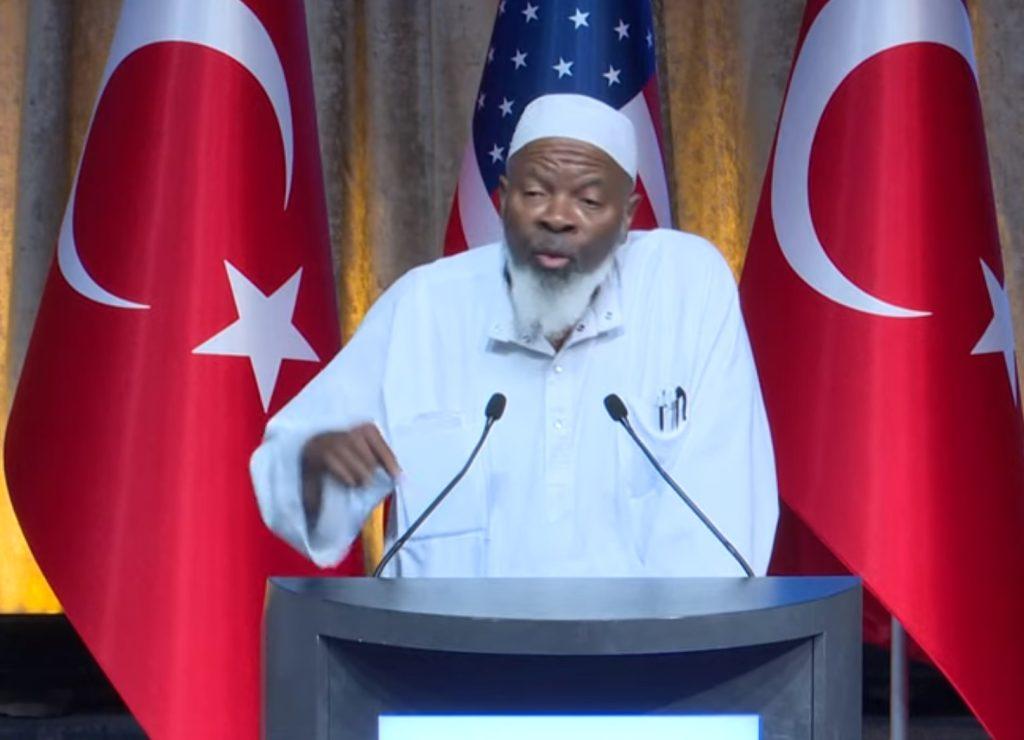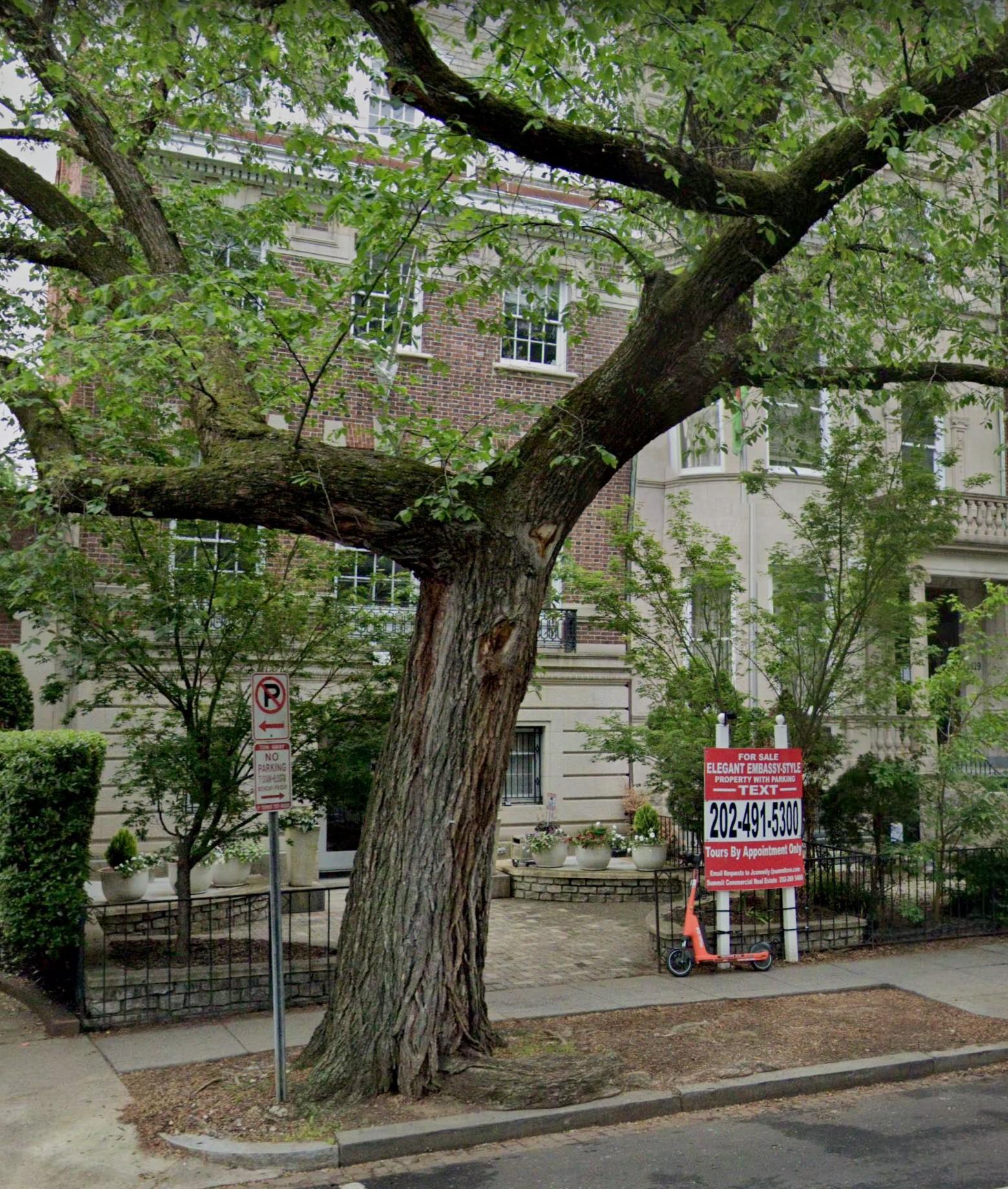The following article was originally published in the Nordic Monitor on Aug. 3, 2023.
Turkey’s ruling Justice and Development Party (AKP), which is rooted in political Islam akin to the Muslim Brotherhood ideology, has been expanding its influence operations in the US. The party recently purchased a multimillion-dollar, four-story building in Washington, D.C., to intensify its lobbying activities on behalf of the country’s one-party rule.
The AKP’s purchase of a building in Washington, D.C. is a clear indication that Turkey’s ruling party is planning to expand its influence operations in the US.
In disclosures filed under the Foreign Agent Registration Act (FARA), Halil Mutlu, a cousin of President Recep Tayyip Erdogan who represents the AKP in the US, informed the Justice Department about the purchase of a 19th-century row house on New Hampshire Avenue NW for $4.5 million.
The money for the building’s purchase was transferred from AKP headquarters on March 17 to an account maintained by the AKP at a US bank.
The AKP is primarily funded by taxpayer money. In their latest income declaration in 2019, the AKP reported having 514.7 million Turkish lira, equivalent to approximately $86.5 million at the then-prevailing rate of exchange. They utilized the entire amount for their activities that year. Astonishingly, 87.5 percent of all the AKP’s income came from the Treasury.
This year the AKP received a significant increase in funding, with 653.8 million Turkish lira provided by the Treasury, representing a staggering 95 percent spike from the 2019 figure.
The AKP is currently leasing office space at 300 New Jersey Avenue NW. It is not yet clear when it will move to recently acquired building, located at 1621 New Hampshire Avenue NW in the historic Dupont Circle neighborhood, where many embassy buildings are located.
The building was previously owned by The Fund for American Studies (TFAS), a nonprofit organization dedicated to promoting limited government and free markets.
The purchase of the new building is a clear indication that Erdogan’s AKP is planning to expand its influence operations in the US. This expansion is not only aimed at facilitating lobbying of the US Congress but also at establishing a stronger presence in US Muslim communities. According to the FARA declaration, Mutlu and other representatives from the AKP office in DC have made several visits, including meetings with senators, congressmen and prominent figures within the US Muslim community.
One noteworthy visit occurred on April 20, when they met with Siraj Wahhaj, a Brooklyn imam who had previously stated that all Muslims should rally around Erdogan’s leadership. Wahhaj made this proclamation at a New York event in 2019 during which Erdogan was the keynote speaker. These interactions demonstrate the AKP’s efforts to strengthen its ties with influential figures within the US Muslim community as part of their expansion strategy.
Wahhaj, formerly known as Jeffrey Kearse before adopting an Arabic name, has indeed developed strong connections with Turkey’s President Erdogan in recent times, even receiving awards from him. However, it’s crucial to note that Wahhaj has a controversial background.
He was listed as an unindicted co-conspirator in the 1993 World Trade Center bombing case, which raised concerns about his associations and activities. Over the years Wahhaj has been involved with various organizations in the US that have been linked to the Muslim Brotherhood, including the Muslim Alliance of North America, the Islamic Society of North America, the American Muslim Council, the North American Islamic Trust and the Council on American Islamic Relations (CAIR).

Given his past and affiliations, Wahhaj’s close ties to President Erdogan raise questions about the nature and implications of their relationship, especially considering the controversies surrounding both figures.
Indeed, the Erdogan government’s efforts to promote its political Islam extend beyond the AKP office in Washington. In 2016 the government invested $110 million to build a religious compound in Lanham, Maryland. This compound is managed by the Diyanet, Turkey’s Religious Affairs Directorate, which is a large, state-funded organization overseeing approximately 80,000 mosques in Turkey and abroad, with a staff of nearly 150,000. The Diyanet serves as the Erdogan government’s vehicle for spreading political Islam beyond Turkey’s borders.
The presence of the Diyanet compound in the US raises concerns about the potential for promoting a specific brand of Islam with political undertones. It becomes even more notable when influential figures like Wahhaj preach at this facility, invited by the Turkish government imam. Such activities can be seen as a means of advancing the Erdogan government’s political agenda and expanding its influence among Muslim communities abroad, including those in the United States.
Another figure tapped by the Erdogan government to promote its ideology among US Muslims is Ousama Jammal, a key Muslim Brotherhood figure in the US and secretary-general of the US Council of Muslim Organizations (USCMO). Jammal has cultivated closer ties with the Turkish president in recent years, with Turkey supporting and funding the Muslim Brotherhood network in the US and other countries. Jammal’s privileged status is obvious through the VIP treatment he receives whenever he visits Turkey, including private audiences with President Erdogan.
Furthermore, the fact that Jammal has preached at the Diyanet compound in Maryland underscores the partnership between the Erdogan government and influential figures within the US Muslim community. This kind of collaboration raises questions about the extent of political and ideological influence being exerted by the Turkish government on religious matters in the US and beyond.

While he was president of the Mosque Foundation in Bridgeview, Chicago, in 2004, Jammal ran a fundraising campaign for Palestinian activist Sami Al-Arian, who was charged with terrorism and accused of being the US leader of the Palestinian Islamic Jihad. After a long legal battle, a plea bargain and house arrest, Al-Arian was deported to Turkey in February 2015.
Erdogan helped him settle in Turkey, secured a position for him at Istanbul Sabahattin Zaim University (IZU) in Istanbul, an institution that was set up by the Islamist İlim Yayma Vakfı foundation. In 2017 Al-Arian established the Center for Islam and Global Affairs (İslam ve Küresel İlişkiler Merkezi, CIGA) at the university and currently serves as its coordinator.
In September 2021 Erdogan inaugurated the opening of a multimillion-dollar high rise built across from UN headquarters in New York City and described the building as a hub for American Muslims, who are being wooed by Turkey’s Islamist rulers in their effort to export political Islamist ideology to US soil.
Speaking to his Muslim guests at an event organized by the Turkish American National Steering Committee (TASC), an outfit that promotes the Muslim Brotherhood with support from the Erdogan government, the Turkish president said: “God willing, we will open our Turkish House opposite the United Nations [headquarters]. This monument of glory will serve as a home not only for our citizens but also for the US Muslim community. Inshallah, your new and united address will be this building.”
The 36-floor Turkish House was constructed by the Erdogan government at a reported cost of nearly $300 million and houses the Turkish diplomatic and consular missions as well as commercial space that will be leased out. The building will support the Turkish government’s US operations.
TASC was investigated by the FBI in the past over its alleged interference in US politics on behalf of the Turkish government, according to the leaked emails of Berat Albayrak, Erdogan’s son-in-law.
The official venues are not the only ones that work to promote the Erdogan government’s religious zealotry in the US. Several religious groups, closely linked to the Erdogan family and the AKP government, are also involved. Perhaps the most important is Turken, which was registered as a 501(C)3 not-for-profit educational organization by the US Internal Revenue Service in 2014. As a nonprofit, it is eligible for certain tax benefits and operates under the guise of educational and charitable purposes.
The connection between Turken and its founding organizations, the Ensar Foundation and the Turkey Youth and Education Service Foundation (TÜRGEV), raises serious concerns about the potential implications of their activities in the United States. The ultra-religious Ensar Foundation gained notoriety in Turkey due to several sexual abuse cases involving students in their dormitories. These incidents raised questions about the organization’s practices and the protection of young individuals in its care.
TÜRGEV, on the other hand, is directly linked to President Erdogan’s family and has been involved in various educational and youth-oriented initiatives to promote political Islam. Its association with Turken further raises questions about the potential agenda and ideology being promoted by these organizations in the US.
The fact that Turken is building a dormitory in Manhattan, specifically catering to Islamist youth, adds another layer of concern. Such activities may raise questions about the possible promotion of religious and political ideologies within these facilities and their potential impact on the youths who reside there.
The 21-story high-rise, located at 300 East 41st Street in New York City, is financed by Turkey through various means including donations from pro-Erdogan businesspeople who are favored in government contracts and tenders and a controversial funds transfer from Turkey’s Red Crescent (Kızılay).
The previous involvement of Mutlu as the president of Turken before moving on to represent the AKP office in Washington adds further intrigue to the situation since it suggests a connection between Turken and the AKP’s activities in the US.
Given these connections and associations, it is essential for US authorities to carefully monitor the activities of Turken and similar organizations to ensure transparency, protect the rights and well-being of individuals involved and safeguard the principles of pluralism and religious freedom in the United States.
All these efforts combined raise significant concerns about the Erdogan government’s efforts to export its political Islamist ideology to the United States. The combination of various activities, such as the establishment of religious compounds, the funding of educational organizations and investment in property suggests a concerted effort to exert influence and advance specific ideologies outside of Turkey.
This raises the question of how these activities may impact the US Muslim community and its relations with other community actors and stakeholders. It is worth noting that it was the Erdogan government’s ideology that destroyed the rule of law, dismantled democratic institutions, wiped out critical and independent media, suppressed the opposition and stifled dissent in Turkey.
